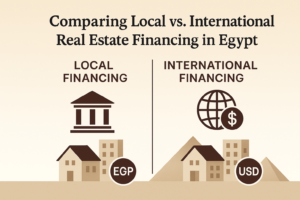In a recent high-level meeting, Egyptian Prime Minister Dr. Mostafa Madbouly convened with leading business figures to address the nation’s pressing economic challenges. This initiative underscores the government’s proactive approach and commitment to fostering a collaborative environment where private sector insights are integral to policy formulation. By engaging directly with industry leaders, the government aims to harness diverse expertise to navigate economic hurdles and drive sustainable development.
Key Discussions:
- Ahmed Ezz: Chairman of Ezz Steel, emphasized the detrimental impact of halting building permits on industries such as steel and cement. He advocated for the immediate resumption of organized construction activities, noting that approximately 70 million Egyptians are currently unable to build their own homes due to stringent building restrictions. Ezz also highlighted the need to rejuvenate the administrative apparatus by recruiting new talent to replace the significant number of retirees over the past decade.
- Hisham Talaat Moustafa: CEO and Managing Director of Talaat Moustafa Group, identified the annual dollar shortage as Egypt’s most pressing issue, leading to severe inflation. He called for a fundamental shift in governmental thinking to address this crisis and proposed forming a committee that includes successful private sector figures, such as Ahmed Ezz and El Sewedy, to develop innovative solutions for the foreign currency deficit.
- Yassin Mansour: Chairman of Palm Hills Developments, discussed challenges facing the private sector, though specific details of his statements were not extensively covered in the available sources.
- Hassan Heikal: Businessman and former investment banker, pointed out issues related to Egypt’s increasing domestic and foreign debt, which burden the state budget with higher interest payments. He proposed establishing a new fund under the Central Bank to manage state-owned companies, lands, public sector banks, and other assets. This strategy aims to unify the budget and debt management, enhancing fiscal stability.
The meeting marked a pivotal step in addressing Egypt’s pressing economic challenges. By actively engaging with influential private sector leaders, the government has signaled its openness to integrating innovative ideas and leveraging private sector expertise to shape effective economic policies.
This exemplifies the government’s recognition that sustainable economic growth cannot be achieved in isolation. Instead, it necessitates strategic partnerships with experienced business leaders who possess firsthand knowledge of market dynamics and economic trends. The discussions held underscore a collective effort to tackle key issues, including foreign currency shortages, regulatory barriers, and public debt management, all of which pose significant challenges to the country’s economic stability.
The proposed solutions—such as resuming building permits to revive the construction sector, forming a private-sector advisory committee to address foreign currency deficits, and establishing a sovereign wealth fund to optimize asset management—highlight the government’s willingness to take bold, decisive actions. These strategies not only aim to stabilize the economy in the short term but also create a robust foundation for long-term growth.
Moreover, the meeting emphasized the importance of modernizing administrative processes and recruiting new talent to rejuvenate Egypt’s workforce. This focus on institutional reform aligns with broader efforts to enhance efficiency and transparency within government operations, ensuring that policies are both adaptable and forward-thinking.
By fostering a collaborative atmosphere, the Egyptian government is paving the way for an inclusive economic recovery. The partnership between public and private sectors holds the potential to unlock new opportunities for investment, strengthen infrastructure, and build resilience against future economic uncertainties. This approach positions Egypt as a competitive player in the global economy, capable of attracting foreign investment and sustaining growth.
In conclusion, this meeting reflects Egypt’s commitment to economic transformation through strategic collaboration, sound fiscal management, and innovative policymaking. As the government continues to implement these proposals, it sets a clear precedent for how cooperation between the public and private sectors can drive sustainable development and ensure economic prosperity for future generations.

















